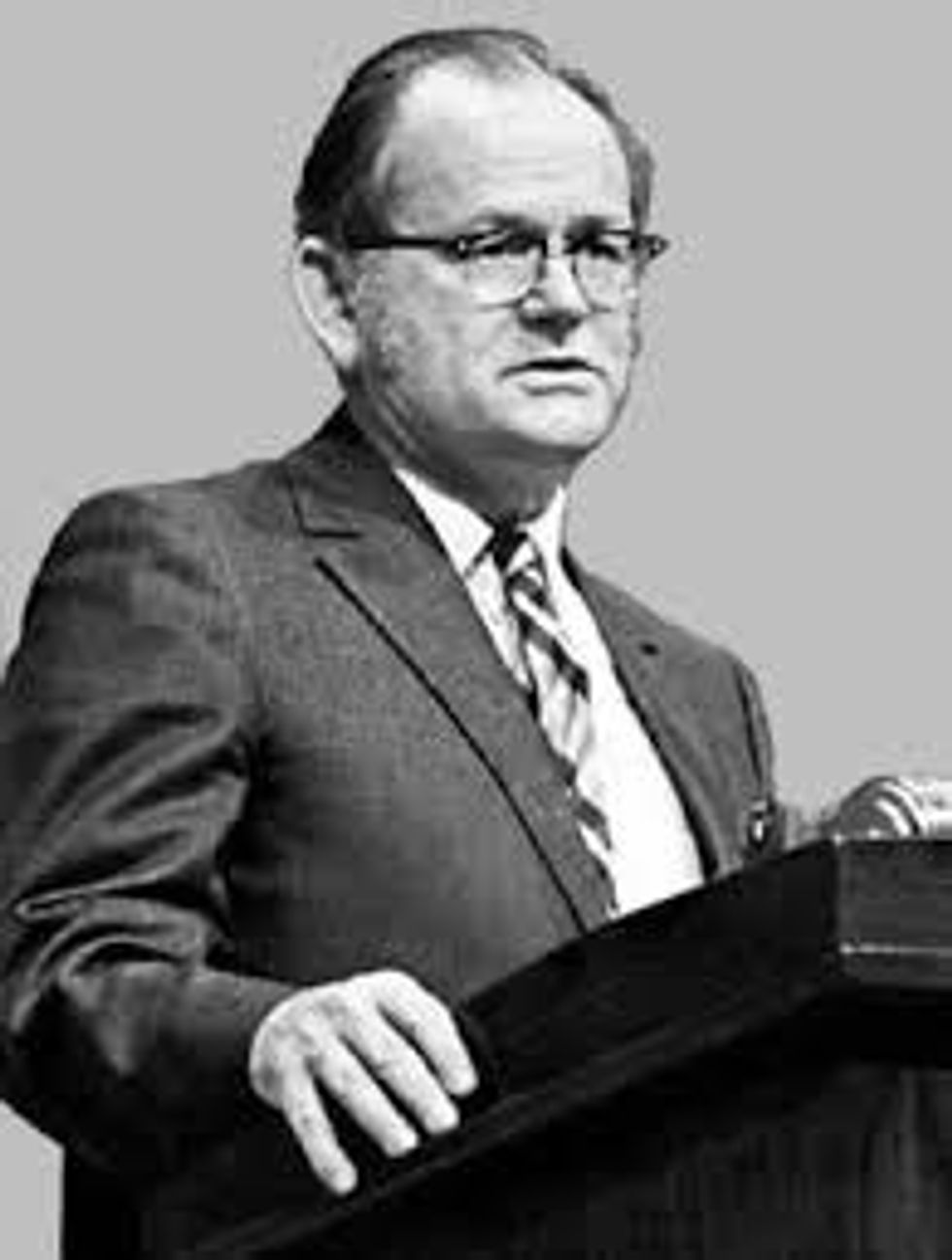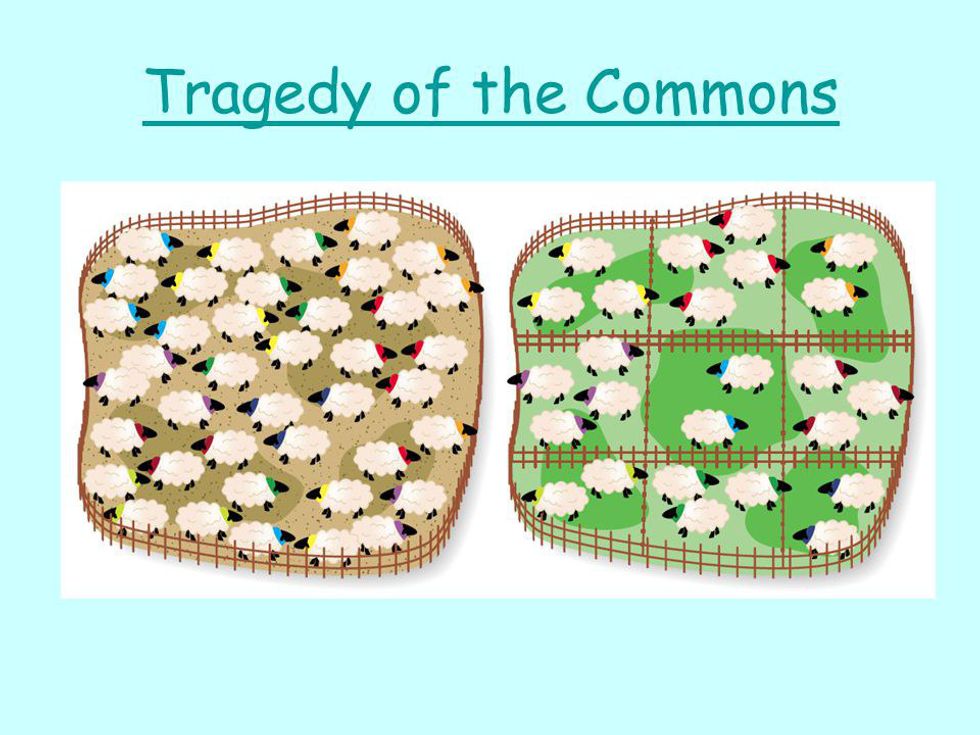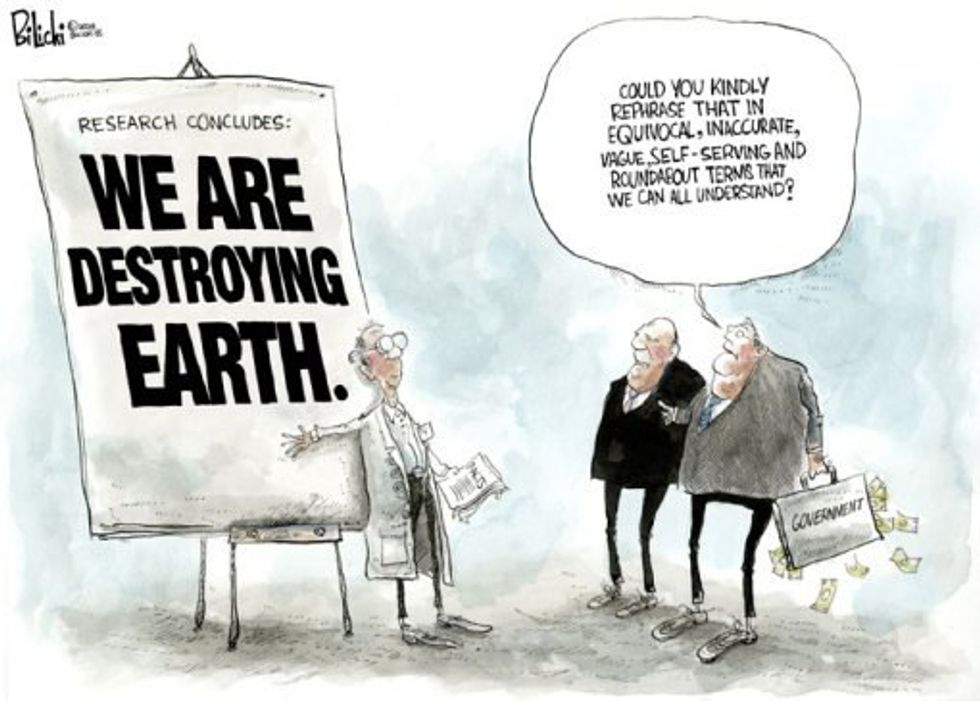PUT OUT 12/19/16
Tragedy of the Commons, by Garret Hardin, is an economic theory often talked about within the environmental community. Basically, it highlights human attitude to "take what you want or someone else will".
A "common" is a shared space with a non-renewable resource. Some examples of a non-renewable resource would be the amount of pumpkins in a patch. There are only so many to harvest at a time. It is not like the next day the patch will be filled again.
Hardin goes onto explain this in terms of a pasture. Imagine you are a farmer and your town has a field that you all share for your cows. Adding a cow to this field will benefit you (+1). Adding only one cow to the field shouldn't have a large impact. It eats as much or as little as it wants. Then you will profit off of the cow by selling its milk.
But after a while, everyone starts adding an extra cow, and then people are adding 2 or 3 or 10 cows to reap the benefits. The pasture obviously cannot sustain an amount of cows that eat the grass faster than it can regrow. The over-grazing by the cows will ultimately destroy the land and no one will be able to use it.
If everyone holds the mindset of take it before someone else, then this planet is doomed. We do it all the time. We overfish the seas so much that 2050 most of the fish are claimed to be gone. We take over our land with garbage and pollutants that seep into groundwater , ruin the soil, and can slip into the ocean.
The entire earth is a commons. We have one home which means we have one shot to protect it. Would you throw garbage all over your house? Would you eat plants from your yard with a weed killer dressing? Are you willing to drink water with remnants of your microbes face wash?






















